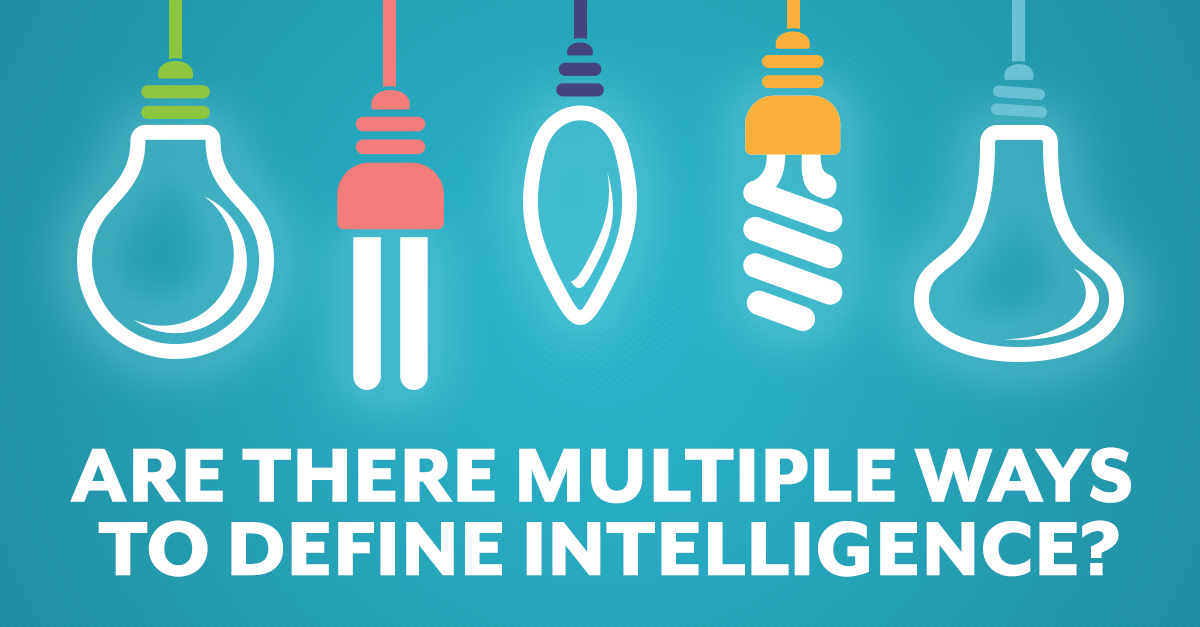Are There Multiple Ways to Define Intelligence?
Posted in Homeschool View on Thursday, January 3, 2013

"We have different gifts, according to the grace given to each of us" (Romans 12: 6a).
Just as gifts come in all shapes and sizes, so do areas of giftedness. However, we don't always recognize our gifts for what they are, especially in education where grades and standardized test scores too often are used to define intelligence.
In 1983, Harvard education professor Dr. Howard Gardner published the theory of multiple intelligences, which proposed eight categories of intelligence:
Linguistic Intelligence: The linguistic learner is likely to enjoy poetry, journaling, creative writing, storytelling, and alphabetizing. Your linguistic child may enjoy teaching you a concept.
Logical/Mathematical Intelligence: The logical-mathematic learner is likely to enjoy activities that include problem solving, diagrams, classifying, and puzzles. This child may also enjoy scientific experiments, cooking by following a recipe, sequencing, and measuring.
Musical Rhythmic Intelligence: A musical learner enjoys music, of course, but she also likely enjoys reading or writing poetry, music, and lyrics. This child can also easily hear, recognize, and repeat patterns.
Bodily/Kinesthetic Intelligence: The kinesthetic learner enjoys science experiments, working with manipulatives, and using computers. This child likes to dance, act, perform, build, or play sports. It is important to keep a kinesthetic learner "busy."
Spatial Intelligence: People with spatial intelligence enjoy painting, drawing, making collages, murals, and posters. A spatial child may enjoy creating a film or video as an alternative to a written report.
Naturalist Intelligence: The naturalist is excellent at recognizing and classifying items in nature. A naturalist is interested in ecology and enjoys visiting zoos, taking walks, farming, and gardening.
Intrapersonal Intelligence: The intrapersonal child enjoys silent reading and journal writing. He or she may also enjoy reading autobiographies and using imagery and dreams in writing.
Interpersonal Intelligence: The interpersonal learner is outgoing. He or she likely enjoys interviewing people, teaching others, cross-age tutoring, and problem-solving.
Though not widely accepted in the education realm, the idea of multiple intelligences is something Christians everywhere should embrace, as we are all uniquely created by God with different talents and abilities we can use to serve Him.
In addition, the freedom of homeschooling makes it a perfect setting in which to explore your child's multiple intelligences. To identify your child's strengths and your own, take a quick quiz on multiple intelligences. Then, take that knowledge and discuss how your child can use his or her gifts to glorify God.
"If your gift is prophesying, then prophesy in accordance with your faith; if it is serving, then serve; if it is teaching, then teach; if it is to encourage, then give encouragement; if it is giving, then give generously; if it is to lead,do it diligently; if it is to show mercy, do it cheerfully" (Romans 12: 6b-8).
What are your own intelligences? Share the results of the quiz in the comment field below. Then, take a moment to share your thoughts on how these results may impact your teaching style.
Comments(1 comment)
LISA W 01/04/2013 10:21:52
I really enjoyed completing the intelligence quiz with my three children. Not only did it help them better understand themselves, but it also helped me understand what will help each of them. Thanks!!